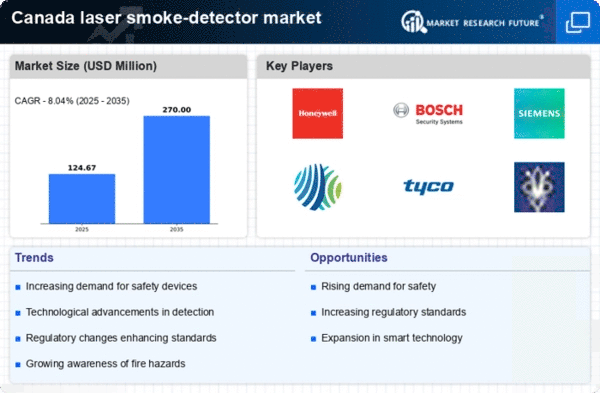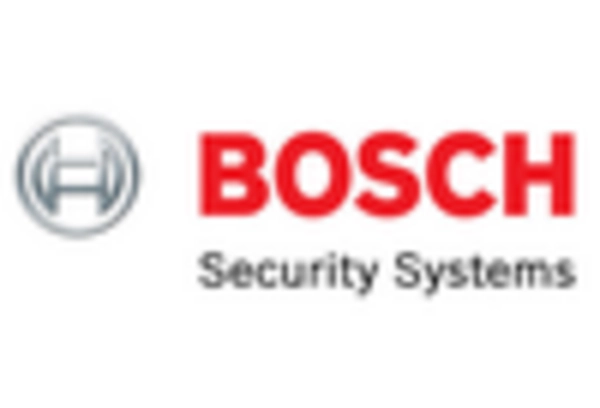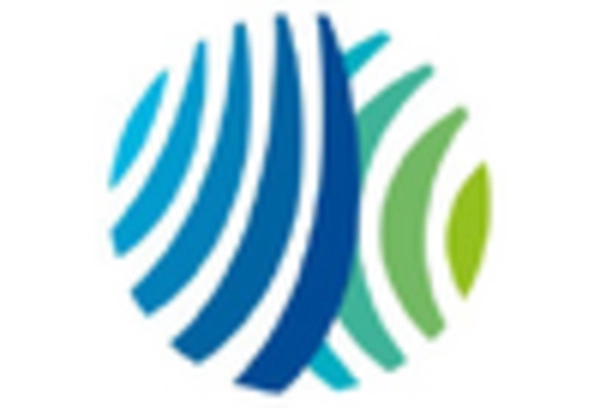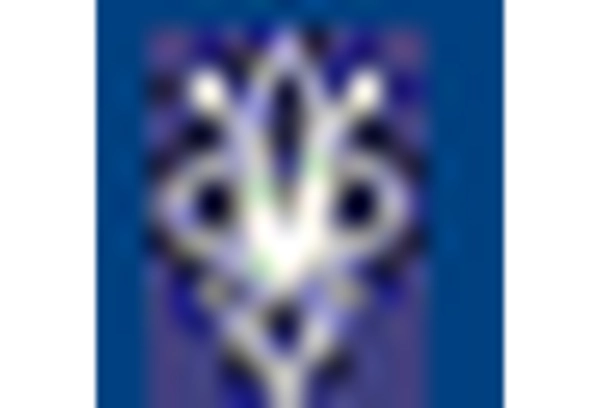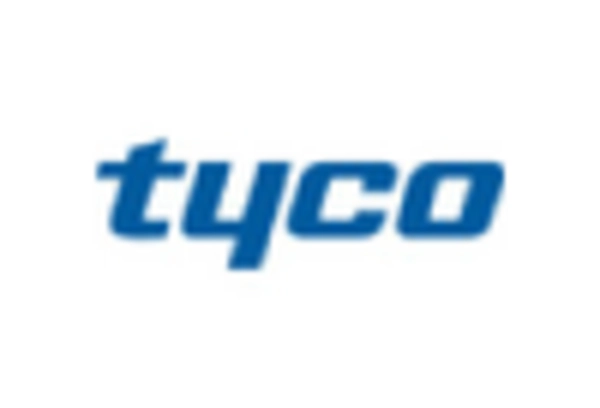Rising Awareness of Fire Safety
The increasing awareness of fire safety among Canadian consumers is a pivotal driver for the laser smoke-detector market. As incidents of fire-related accidents continue to be reported, individuals and businesses are prioritizing safety measures. This heightened awareness is reflected in the growing demand for advanced smoke detection technologies, particularly laser smoke detectors, which offer superior sensitivity and faster response times. In 2025, the market is projected to grow by approximately 15%, driven by consumers seeking reliable and efficient fire safety solutions. The laser smoke-detector market is thus positioned to benefit from this trend, as more households and commercial establishments invest in state-of-the-art fire detection systems to protect lives and property.
Increased Insurance Requirements
Increased insurance requirements for fire safety are influencing the laser smoke-detector market in Canada. Insurance companies are increasingly mandating the installation of advanced smoke detection systems, including laser smoke detectors, to mitigate risks associated with fire hazards. This trend is particularly evident in commercial properties, where compliance with insurance policies is critical for coverage. As a result, businesses are investing in laser smoke detectors to meet these requirements and reduce insurance premiums. The laser smoke-detector market is likely to see a boost in demand as more property owners recognize the financial benefits of adhering to insurance standards while enhancing safety measures.
Government Initiatives and Funding
Government initiatives aimed at enhancing fire safety standards in Canada are significantly influencing the laser smoke-detector market. Various provincial and federal programs are providing funding and incentives for the installation of advanced fire detection systems in residential and commercial properties. For instance, the Canadian government has allocated over $10 million in grants to support the adoption of innovative fire safety technologies. This financial backing encourages consumers to opt for laser smoke detectors, which are known for their precision and reliability. Consequently, the laser smoke-detector market is likely to experience substantial growth as these initiatives promote the installation of cutting-edge safety solutions across the nation.
Urbanization and Infrastructure Development
Urbanization and infrastructure development in Canada are contributing to the expansion of the laser smoke-detector market. As cities grow and new buildings are constructed, there is an increasing need for effective fire safety measures in both residential and commercial properties. The construction of high-rise buildings and complex structures necessitates advanced smoke detection systems, such as laser smoke detectors, which can cover larger areas and provide quicker alerts. In 2025, the market is anticipated to grow by 10% as urban planners and developers prioritize safety in their projects. The laser smoke-detector market is thus poised to capitalize on this trend, providing essential solutions for modern urban environments.
Technological Innovations in Detection Systems
Technological innovations in detection systems are driving the evolution of the laser smoke-detector market. The integration of advanced features such as real-time monitoring, remote alerts, and enhanced sensitivity is making laser smoke detectors more appealing to consumers. In 2025, the market is expected to witness a surge in demand, with a projected growth rate of 12% as manufacturers introduce new models equipped with smart technology. These innovations not only improve the effectiveness of smoke detection but also align with the preferences of tech-savvy consumers. The laser smoke-detector market is thus adapting to these technological advancements, ensuring that products meet the evolving needs of the market.


